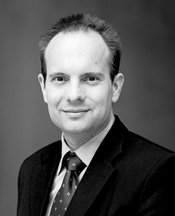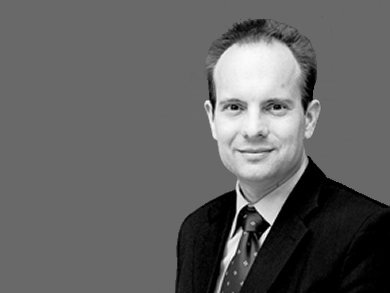Dr. Kai Pflug is CEO of Management Consulting – Chemicals in Shanghai, China. He talks with Dr. Vera Koester for ChemistryViews.org about his career path, what aspects he deals with in his job, and how he would advise anyone who wants to become a consultant.
Please tell us a bit about how your career has developed.
After completing my Ph.D. and postdoctoral research at UC Berkeley, USA, I joined a dental materials company. In the five years I worked for them, I developed a number of dental products such as a dental adhesive that is used to attach filling materials to teeth. I also got involved in R&D management, for example, in the evaluation of external product ideas and the cooperation with external R&D partners.
During this period I also started and completed a Master of Economics degree at the Fernuniversität Hagen, Germany.
I then joined a management consulting company, Arthur D. Little, and have worked in management consulting to the chemical industry ever since. After four years of work in Germany, I changed companies and started working in China, helping primarily Western chemical companies to expand their business in China. I opened a representative office for a small specialized consulting company and managed the office for a few years. Eventually, I opened my own niche consulting company, Management Consulting – Chemicals.
What do you do in your current position?
I help chemical companies — primarily Western ones but also Chinese companies — in improving their business. My consulting is mainly in the areas of strategy, marketing, acquisition target search/due diligence, and market information. I also moderate workshops and provide training in this area. Most of my work is done in the form of relatively short projects.
In addition, I also actively market my services — primarily by publishing articles — and keep myself updated with regard to the latest developments in the chemical industry in China.
How much is your job related to chemistry?
My consulting focus is the chemical industry, so there clearly is a relationship, particularly with regard to value chains – which chemicals are made from which others? However, deep knowledge of chemical reactions is rarely needed; the focus is much more on applications of chemicals, and economic issues related to the sales and marketing of chemicals.
What other skills do you need?
Obviously, I need consulting skills. This includes gathering and structuring information, drawing conclusions from it, and presenting the results in a clear way.
Apart from this, I need the skills to run my own business – to prepare proposals including deciding on the fees, to manage my company, and so forth. In consulting, the main skill is to sell projects, which is something I am still learning.
What problems or decisions do you deal with regularly?
Clients come to me with a very broad range of issues. Typical decisions can be which strategy to follow, which smaller companies to target for acquisitions, and whether to make specific investments.
Apart from client issues, there are also the issues involved with running my own business. Typical decisions in this area would be how to price a project proposal or how to best market my services to specific clients.
Please tell us something about your daily routine.
The amount of routine in my job is quite limited. However, I try to do some marketing activity every day, and force myself not to forget to do this.
What do you enjoy most about your job?
I enjoy being my own boss, particularly the freedom to only accept work I feel confident I can deliver at a high level of quality.
Are there any aspects you would like to be different?
I would like to work more for Chinese clients as I am sure I could help them to a great extent. However, it is difficult to convince them to pay for consulting, particularly without providing a big brand name.
Why did you decide to move from academia to this job?
While doing my postdoctoral research, I felt that academic research was not very attractive to me owing to the lack of non-chemical aspects in the work, for example, the business aspect. So I looked for a job outside of academia.
Is there anything you miss from your time in the lab?
Not really.
What has been the most challenging or the hardest part of your job?
The initial feeling of insecurity of finding clients was challenging and unpleasant but got much better after the first few projects.
What advice would you give to students pursuing a job in this area?
Do not start as a self-employed consultant. Instead, seek a position in a bigger consulting company. Consulting needs to be learned, and it can only be learned from others.
Did you need to specialize in a certain field or is a general chemistry background sufficient?
A general background is sufficient, however, knowledge in economics is very helpful.
Thank you for the interview.

Kai Pflug gained his Ph.D. in chemistry from the University of Hamburg, Germany, in 1994. After postdoctoral work at UC Berkeley, CA, USA, he joined Dentsply, Konstanz, Germany, from 1996 to 2000 as a research chemist. From 2000 to 2003, he worked as a consultant at Arthur D. Little, Düsseldorf, Germany, and became Project Manager/VP Asia Pacific for two smaller consulting companies in China. Since 2009, Pflug has been the CEO of Management Consulting – Chemicals, Shanghai, China.
Selected Articles
- Why Are Foreign Chemical Companies Growing More Slowly in China?,
Kai Pflug,
CHEManager International 02.12.2014. - Wanhua – The challenges of establishing a global presence,
Marc Block, Kai Pflug, Martin Zhao,
China Chemical Reporter 2014, 25 (23). - Shale Booms into Plastics Export Market,
Kai Plug,
CHEManager International 20.01.2015.
Selected Awards
- Grant, Verband der chemischen Industrie (VCI)
- Grant, Humbold Foundation
- Buonocore Award
All interviews of the ChemistryViews.org series “Chemists Talk About Their Jobs“




